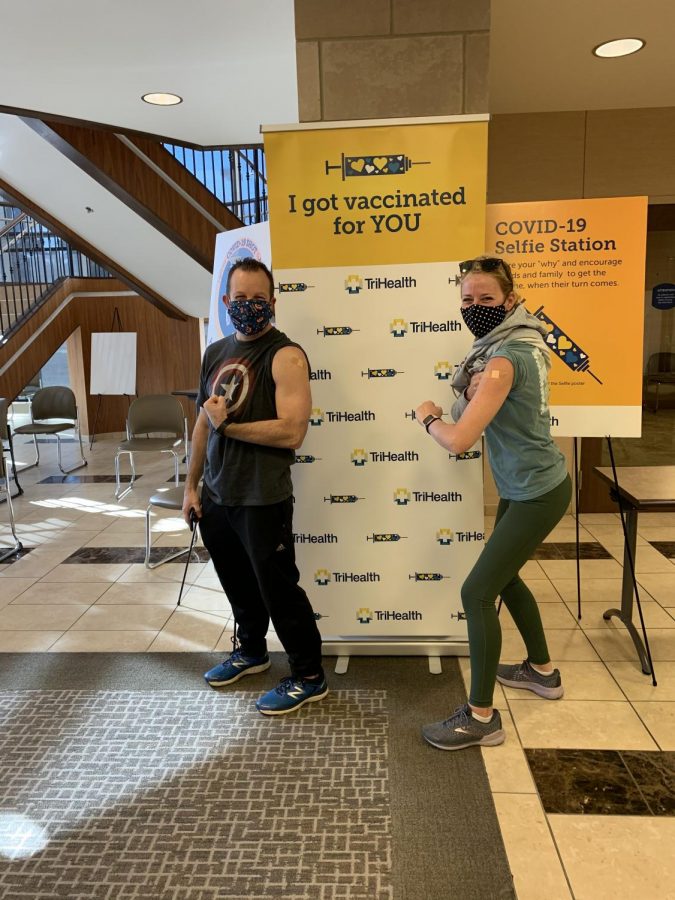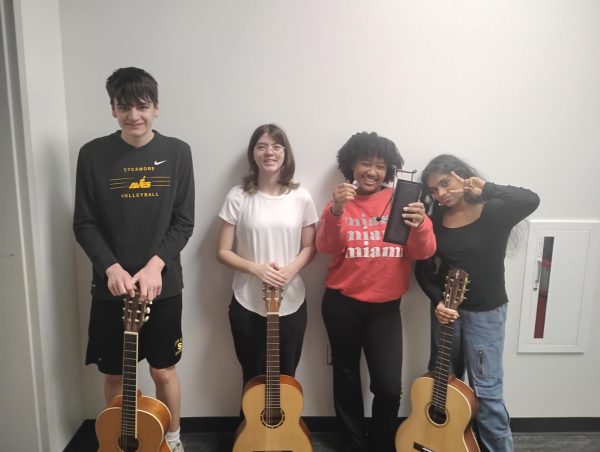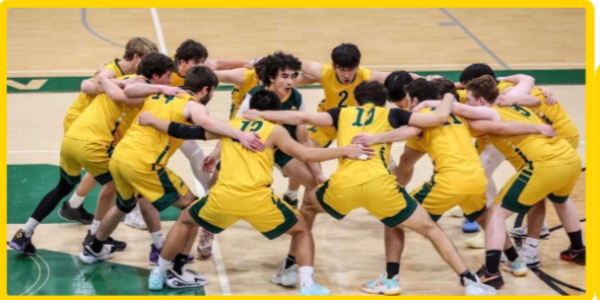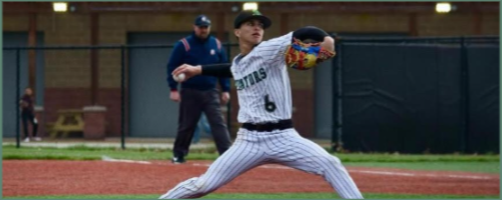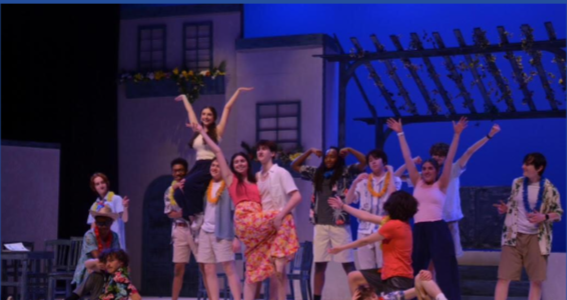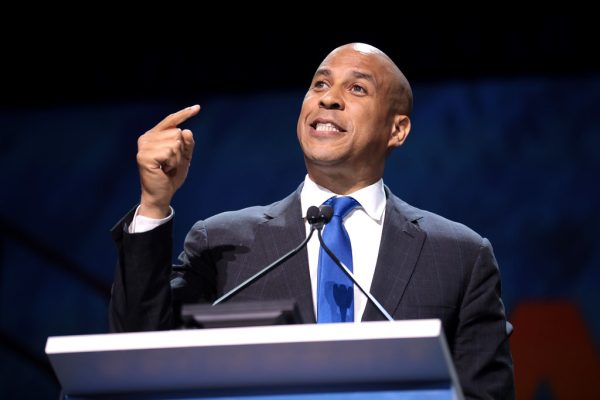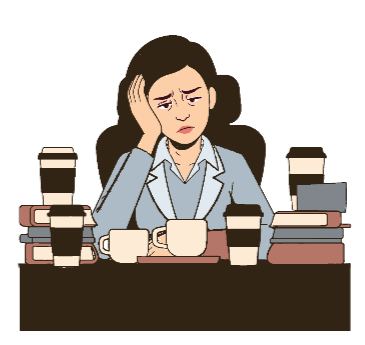“Get in, get your shot, and go”
SHS faculty reflect on vaccinations after being completely immunized
VACCINATIONS. Almost all SHS staff members have been fully vaccinated, and as we are taking steps toward a healthier school experience, we can’t help but celebrate this victory after a year of so much uncertainty. Read below for more!
Is normal finally returning? Recently, teachers at SHS have been taking the COVID-19 vaccine, and hesitant, yet optimistic, thoughts of normalcy have been flitting across our minds. Different teachers had different experiences with the vaccine, and have varying visions of a new, Covid-free world.
Though healthcare professionals and the elderly have been priorities for vaccination, educators have finally been given the floor due to their classification as “front line workers.” And so, through our partnership with TriHealth, almost every Sycamore High School faculty member has received one or both doses of the Pfizer vaccine, which has an efficacy rate of around 94%, according to Pfizer’s official website. This is a momentous occasion for SHS staff, one which is particularly timely as we pass the one-year anniversary of school closures. In addition, it’s also a nice way to round out a year filled with so much uncertainty.
The Sycamore staff received the vaccine in two rollouts: first, the older teachers received their first dose throughout the month of February, with the younger teachers eligible one week later. Older teachers were given their second dose the weekend of March 6th and the younger teachers will be receiving theirs this weekend.
Though all teachers are anticipated to have been fully immunized by March 14th, some received their second dose last weekend, and all faculty were given the day off on Monday, March 8th for “recuperation” in case of any adverse effects. Math teacher Marika McFall had been warned about feeling a little sick afterward but was not at all worried. Though she was dreading feeling sick due to her four children and other responsibilities, she made it clear that “[The vaccine] has been very rigorously tested and it doesn’t scare me.”
As for the experience, most teachers were a little surprised with how smooth the process was. Kelsey Randall, who teaches World History and Government, “was honestly in [her] head picturing it to be a chaotic nightmare.” But in reality, it was far from that; after making an appointment and receiving explicit instructions, “it was like a well oiled machine,” Randall said.
“It was super easy, and [the hospital] was a thousand percent ready for us. It was just ‘get in, get your shot, wait 15 minutes, and then you go.’ It was really easy, well run, and I give all the nurses outstanding credit for a job well done,” said Kate Korchok, Spanish teacher.
Mrs. Laura Newton, an English teacher, was particularly impressed with the timeline of vaccine distribution, noting her surprise that science was advanced enough to put out a tested vaccine in just a year. And while there are many positive emotions associated with receiving the vaccine, Newton also notes the underlying feeling of guilt.
“I’m not going to lie, I really do feel a bit of guilt about receiving the vaccine earlier than most. For one, my husband travels so much more than I do, and works around a lot more people, and he still isn’t vaccinated,” Newton said.
This imposter-like feeling is not unique to Newton; Mrs. Sofia Feist of the English department expressed the same hesitations.
“Yes getting the vaccine is really exciting when thinking of the big picture or herd immunity. The more of us that get it, the better it is for our families, and we are less likely to pass it on to our fellow staff members and students. But I will say that from an extended family standpoint, I am getting it before my mother, before other family members who have a higher risk than I do, and that feels a little strange. I get that being in a school allows me to feel that I deserve it, but also am I more deserving of my mother in her 60s?” Feist said.
However, at the end of the day, it is not hyperbole when stating that all of our SHS faculty are putting their lives on the line every day, just to ensure that we have as normal of an education as possible. They should be prioritized because they are prioritizing us, and it is heart-warming to know that they will be safer because of it.
Looking ahead, it seems only logical that students should try and get vaccinated as soon as sufficient research has been released and the vaccine has been approved for those under the age of 16. The Pfizer vaccine, according to Web MD, “has FDA approval for use in people 16 and older, while children aged 12 to 15 have been enrolled in clinical trials of the vaccine.” With most all high school juniors and seniors being above the 16-year line, it seems only a matter of time before we too will be rolling up our sleeves, scrunching up our faces, and letting out breaths of relief as we have finally been safely immunized.
“I do think that that should be something that the school really promotes and supports. You know, the goal is herd immunity, and more vaccinations is safer for us and for families and communities. So, yes. Definitely should be something our school should be encouraging once students are eligible. Part of the mission of the staff and for school is to support the development and well being of students and so I do think that perhaps vaccinations should be part of the eventual equation,” Feist said.
With all of us blundering around in a dark cave for the better part of a year, it is refreshing to see a pinprick of light. And with all of our teachers safe, we cannot help but feel happy for them, and ask ourselves a dangerously terrifying question: is this almost over?
Your donation will support the student journalists of Sycamore High School. Your contribution will allow us to purchase equipment and cover our annual website hosting costs.


